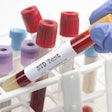
User fees for CLIA labs will increase by 20% in 2019 -- the first increase in 20 years -- under new rules issued on December 28 by the U.S. Centers for Medicare and Medicaid Services (CMS).
Based on an analysis of financial data, the agency will require an increase in user fees to regulate CLIA labs under the requirements of the Clinical Laboratory Improvement Amendments (CLIA) of 1998. That statue requires CMS to assess user fees to cover its administration of the CLIA program.
In a fact sheet, CMS explained the rationale for why it needs to raise user fees for the first time in 20 years. The agency said it performs monthly monitoring of CLIA user fee collections and compares them with its expenses under the program.
To perform testing, labs in the U.S. must receive a CLIA certificate from CMS; certificates are issued on a fee basis to cover general costs of administering and operating the national CLIA program. Additional fees can include inspection fees for laboratories that are not accredited. Both types of fees are assessed and billed on a two-year cycle; the total amount of user fees that CMS receives must be adequate to cover the agency's costs for administering the CLIA program.
The current fee schedule was based on assumptions made in 1992 regarding the workload required to administer the program, according to the agency. CMS' review indicates that a 20% increase in user fees is required to maintain the CLIA program through fiscal-year 2021.
The December 28 increase culminates a regulatory review that began in January 2018, when CMS announced that it was planning to raise CLIA lab fees. The agency said it received many positive comments on the increase, with many commenters noting there had not been an increase since 1997.
"This increase to the CLIA fees helps ensure the CLIA program can continue to be self-sustaining, as required by law," CMS wrote.















